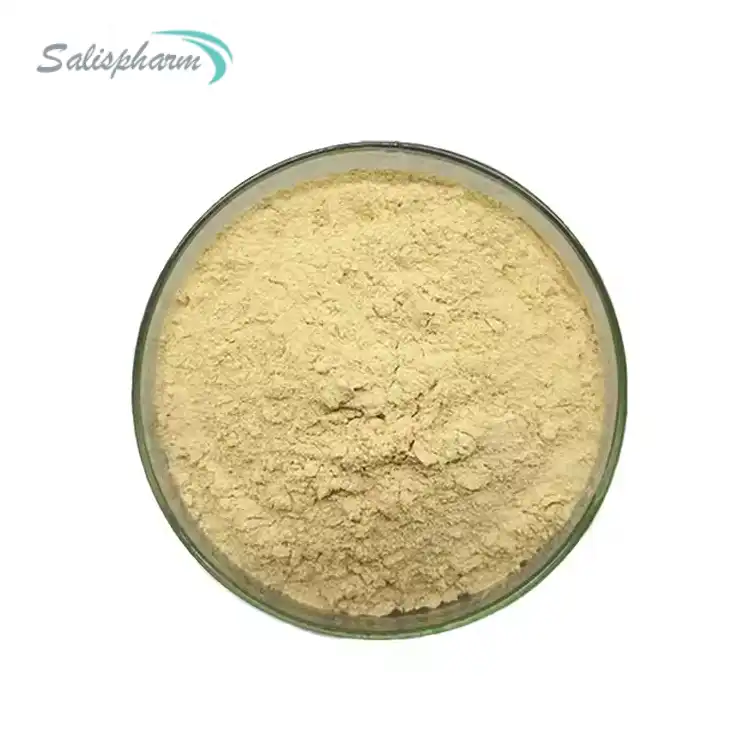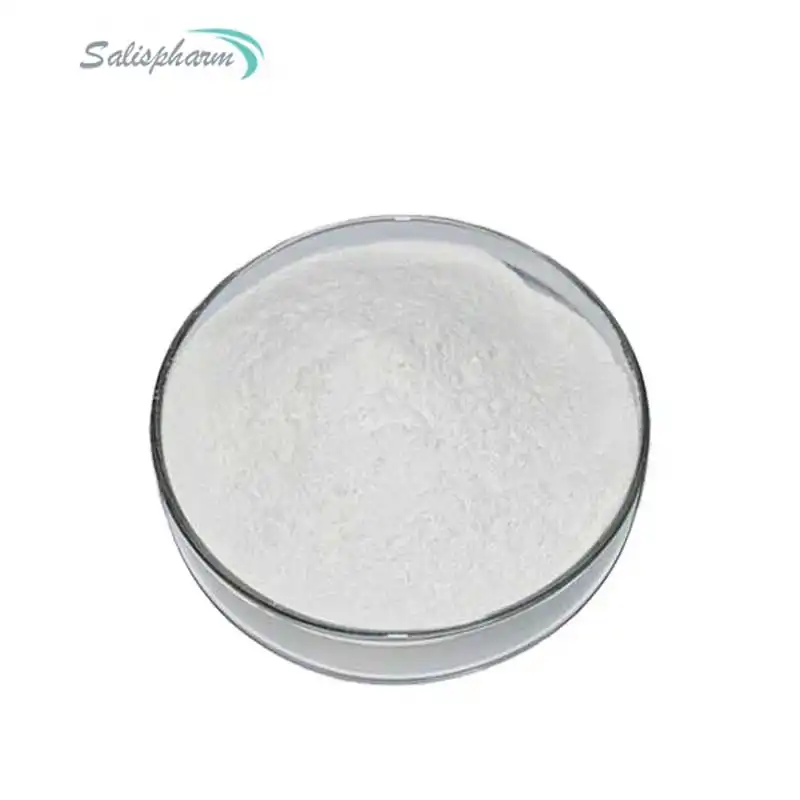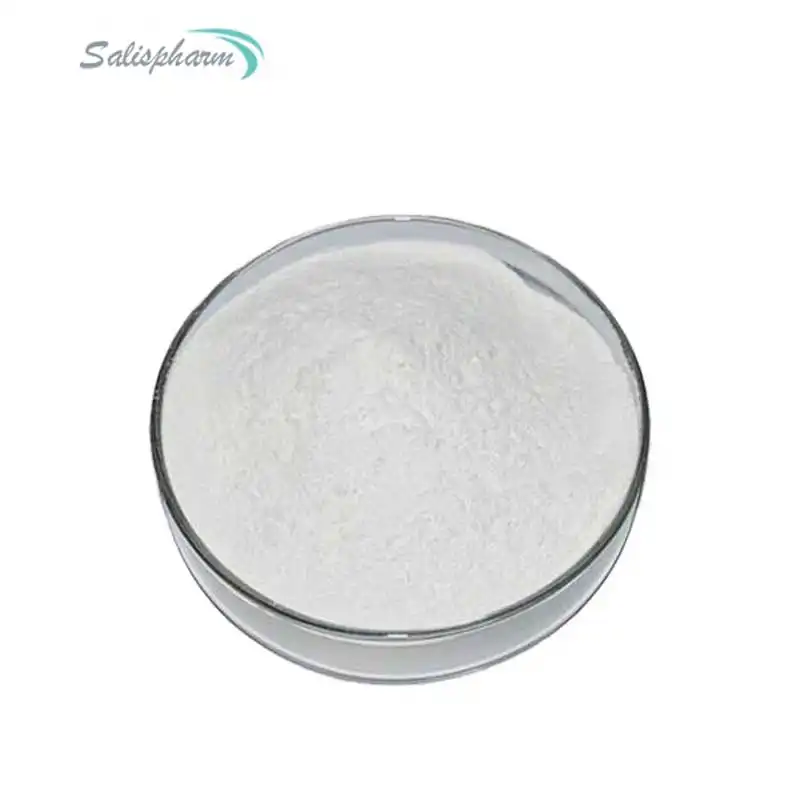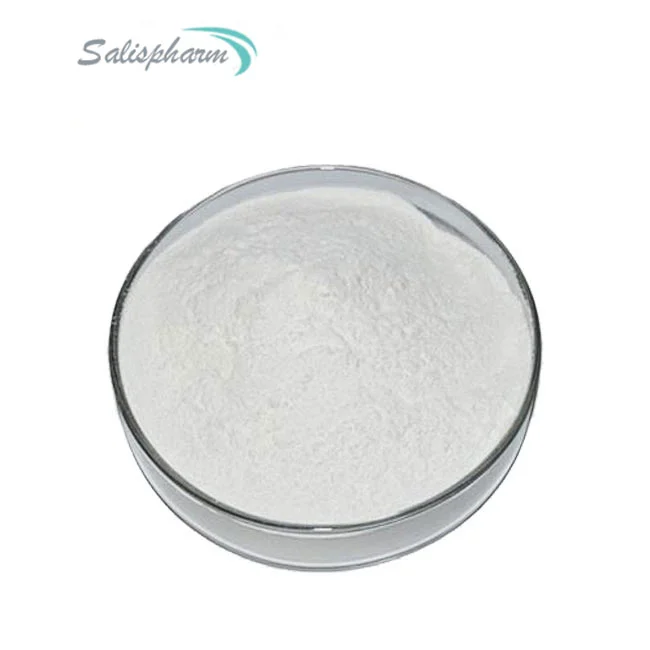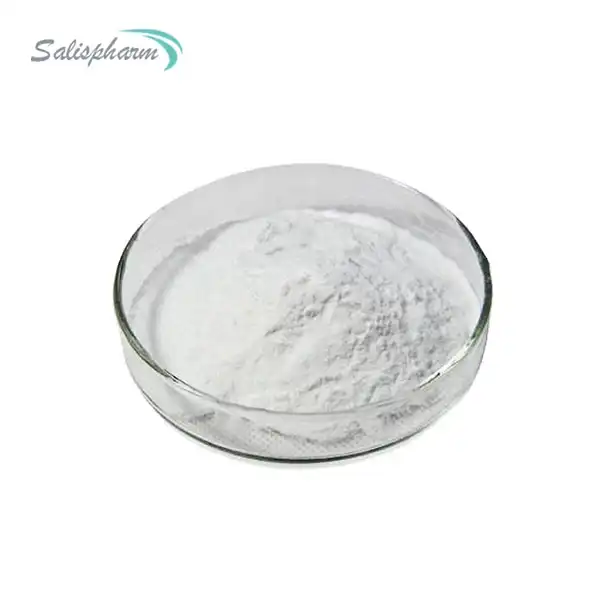Trimethoprim powder is an antibiotic medication commonly used to treat various bacterial infections. When it comes to its effects on the kidneys, there are important considerations to keep in mind. This blog post will explore the relationship between Trimethoprim powder and kidney health, addressing common questions and providing evidence-based information to help you better understand this topic.
How does Trimethoprim affect kidney function?
Trimethoprim is a widely used antibiotic that belongs to the class of drugs known as dihydrofolate reductase inhibitors. Its primary mechanism of action involves interfering with bacterial folate synthesis, which is essential for bacterial growth and reproduction. While Trimethoprim is generally considered safe and effective for treating various bacterial infections, its impact on kidney function deserves careful attention.
When it comes to kidney function, Trimethoprim can have both direct and indirect effects. One of the most significant ways Trimethoprim influences kidney function is through its impact on creatinine levels. Creatinine is a waste product normally filtered out by the kidneys, and its blood levels are often used as an indicator of kidney function. Trimethoprim has been shown to interfere with the tubular secretion of creatinine in the kidneys, which can lead to a temporary increase in serum creatinine levels.
It's important to note that this increase in creatinine levels doesn't necessarily indicate kidney damage or impaired function. Rather, it's a result of the drug's mechanism of action on the kidney's tubular cells. This effect is usually reversible and resolves once the medication is discontinued. However, for patients with pre-existing kidney issues or those undergoing regular kidney function monitoring, this increase in creatinine can be concerning and may require additional evaluation.
Another way Trimethoprim affects kidney function is through its potential to cause hyperkalemia or elevated potassium levels in the blood. The kidneys play a crucial role in regulating potassium balance, and Trimethoprim can interfere with this process. By inhibiting potassium excretion in the distal nephron of the kidney, Trimethoprim can lead to potassium retention. This effect is more pronounced in patients with risk factors such as older age, diabetes, or concurrent use of other medications that affect potassium levels.
Despite these potential effects, it's important to emphasize that for most patients with normal kidney function, Trimethoprim is generally well-tolerated. The drug's benefits in treating bacterial infections often outweigh the risks of temporary changes in kidney-related parameters. However, healthcare providers typically exercise caution when prescribing Trimethoprim Powder to patients with known kidney issues, adjusting dosages as necessary and monitoring kidney function closely during treatment.
In conclusion, while Trimethoprim does affect kidney function, particularly in terms of creatinine secretion and potassium regulation, these effects are usually manageable and reversible. The key is proper monitoring, especially for at-risk patients, and appropriate dosage adjustments when necessary. As with any medication, the use of Trimethoprim should always be under the guidance of a healthcare professional who can weigh the benefits against potential risks for each individual patient.
Can Trimethoprim cause kidney damage?
The question of whether Trimethoprim can cause kidney damage is a complex one that requires a nuanced understanding of the drug's effects on renal function. While Trimethoprim is generally considered safe for use in patients with normal kidney function, there are circumstances under which it may potentially contribute to kidney problems.
First and foremost, it's crucial to distinguish between the drug's effects on kidney function markers and actual kidney damage. As mentioned earlier, Trimethoprim can cause a temporary increase in serum creatinine levels due to its interference with creatinine secretion in the kidney tubules. This effect, however, does not typically represent true kidney damage but rather a functional change that resolves after discontinuation of the medication.
That being said, there are situations where Trimethoprim use could potentially lead to more significant kidney issues. One of the primary concerns is the risk of acute kidney injury (AKI) in certain patient populations. Elderly patients, those with pre-existing kidney disease, and individuals with other risk factors such as dehydration or concurrent use of nephrotoxic medications may be at higher risk for developing AKI when taking Trimethoprim.
The mechanism by which Trimethoprim Powder might contribute to kidney damage in these cases is multifaceted. One factor is the drug's potential to cause interstitial nephritis, an inflammatory condition of the kidney tissue. While rare, interstitial nephritis can occur as an allergic reaction to Trimethoprim and can lead to acute kidney injury if not recognized and treated promptly.
Another way Trimethoprim could potentially impact kidney health is through its effects on electrolyte balance, particularly potassium. As mentioned earlier, Trimethoprim can cause hyperkalemia by interfering with potassium excretion in the kidneys. In severe cases, particularly in patients with risk factors, this electrolyte imbalance could potentially lead to cardiac arrhythmias and other complications that indirectly affect kidney function.
It's also worth noting that Trimethoprim is often used in combination with sulfamethoxazole (as co-trimoxazole). This combination can have more pronounced effects on kidney function, particularly in terms of the risk of hyperkalemia and acute kidney injury. The sulfamethoxazole component adds to the potential for allergic reactions and may increase the risk of crystal formation in the urinary tract, which could theoretically contribute to kidney problems in some cases.
Despite these potential risks, it's important to emphasize that serious kidney damage from Trimethoprim use is relatively rare when the drug is used appropriately and under medical supervision. The vast majority of patients tolerate the medication well, and any effects on kidney function are usually mild and reversible.
To minimize the risk of kidney-related complications, healthcare providers typically take several precautions when prescribing Trimethoprim:
1. Dosage adjustment: For patients with known kidney impairment, the dosage of Trimethoprim is often reduced to account for decreased drug clearance.
2. Monitoring: Regular monitoring of kidney function and electrolyte levels, particularly in high-risk patients, can help detect any potential issues early.
3. Hydration: Ensuring adequate hydration can help maintain good kidney function and reduce the risk of complications.
4. Avoiding drug interactions: Healthcare providers carefully consider potential interactions with other medications that could increase the risk of kidney problems.
5. Limited duration: When possible, Trimethoprim Powder is prescribed for the shortest effective duration to minimize the risk of adverse effects.
In conclusion, while Trimethoprim has the potential to affect kidney function and, in rare cases, contribute to kidney damage, these risks are generally manageable with proper medical oversight. The benefits of treating bacterial infections often outweigh the potential risks to kidney health for most patients. However, individuals with pre-existing kidney issues or other risk factors should be closely monitored when taking Trimethoprim, and any concerns about kidney function should be promptly discussed with a healthcare provider.
In recent years, there has been an increasing focus on antibiotic stewardship – the responsible use of antibiotics to preserve their effectiveness and reduce the development of resistance. This has led to more targeted use of antibiotics for UTIs, with a preference for narrower-spectrum drugs when possible.
Additionally, proper diagnosis is crucial. Not all urinary symptoms necessarily indicate a bacterial UTI, and unnecessary antibiotic use can contribute to resistance and potentially cause side effects. Urine cultures are often recommended to confirm the presence of bacteria and guide treatment choices.
In conclusion, while Trimethoprim Powder remains an important option for treating UTIs, there are numerous alternatives available. The choice of treatment should be individualized based on patient factors, local resistance patterns, and the specific characteristics of the infection. As antibiotic resistance continues to be a global concern, judicious use of these medications and consideration of non-antibiotic approaches when appropriate are increasingly important in the management of urinary tract infections.
If you are also interested in this product and want to know more product details, or want to know about other related products, please feel free to contact iceyqiang@aliyun.com.
References
1. Gleckman R, Blagg N, Joubert DW. Trimethoprim: mechanisms of action, antimicrobial activity, bacterial resistance, pharmacokinetics, adverse reactions, and therapeutic indications. Pharmacotherapy. 1981;1(1):14-20.
2. Naderer O, Nafziger AN, Bertino JS Jr. Effects of moderate-dose versus high-dose trimethoprim on serum creatinine and creatinine clearance and adverse reactions. Antimicrob Agents Chemother. 1997;41(11):2466-2470.
3. Crellin E, Mansfield KE, Leyrat C, et al. Trimethoprim use for urinary tract infection and risk of adverse outcomes in older patients: cohort study. BMJ. 2018;360:k341.
4. Kainer MA, Lautenbach E, Nachamkin I, et al. Resistance patterns of urinary isolates in a college student population. Int J Antimicrob Agents. 2001;18(1):63-66.
5. Gupta K, Hooton TM, Naber KG, et al. International clinical practice guidelines for the treatment of acute uncomplicated cystitis and pyelonephritis in women: A 2010 update by the Infectious Diseases Society of America and the European Society for Microbiology and Infectious Diseases. Clin Infect Dis. 2011;52(5):e103-e120.
6. Huttner A, Verhaegh EM, Harbarth S, et al. Nitrofurantoin revisited: a systematic review and meta-analysis of controlled trials. J Antimicrob Chemother. 2015;70(9):2456-2464.
7. Zhanel GG, Walkty AJ, Karlowsky JA. Fosfomycin: A First-Line Oral Therapy for Acute Uncomplicated Cystitis. Can J Infect Dis Med Microbiol. 2016;2016:2082693.
8. Gardiner BJ, Stewardson AJ, Abbott IJ, Peleg AY. Nitrofurantoin and fosfomycin for resistant urinary tract infections: old drugs for emerging problems. Aust Prescr. 2019;42(1):14-19.
9. Huttner A, Kowalczyk A, Turjeman A, et al. Effect of 5-day nitrofurantoin vs single-dose fosfomycin on clinical resolution of uncomplicated lower urinary tract infection in women: A randomized clinical trial. JAMA. 2018;319(17):1781-1789.
10. Jepson RG, Williams G, Craig JC. Cranberries for preventing urinary tract infections. Cochrane Database Syst Rev. 2012;10:CD001321.



